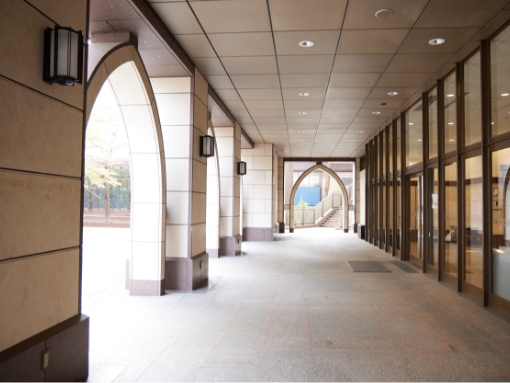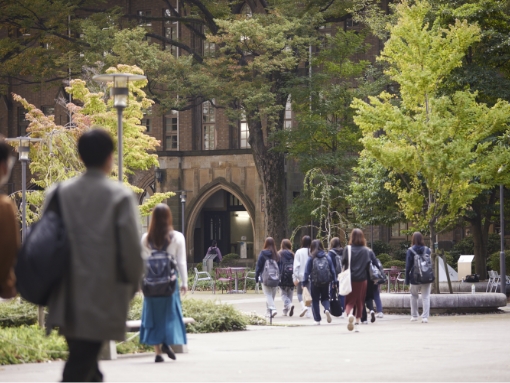About Residence Status in JapanGlobal

About Residence Status in Japan
Below is the information about the residence procedures in Japan, the Immigration Bureau offices in the greater Tokyo area, and the Foreign Residents Information Center.
Residence procedures
Residence procedures include the followings.
Obtaining the status of residence
Incoming international students should visit this page (in Japanese).
Extending period of stay under the current status of residence
If your status of residence is about to expire, you will need to take the following procedures to extend it. You may begin the process up to three months before the expiration date, so please try to complete the procedures at least one or two months before expiration.
- Fill out the "Request to Draft an Application Form for Extension of Status of Residence" form at the International Centre, and ask them to prepare the application form. You need to bring your residence card and a copy of your school timetable (printed out from G-Port).
- Take the documents below to one of the branch offices of the Immigration Services Agency to apply.
- Application Form for Extension of Status of Residence*
- Passport
- Student ID
- Residence card
- Certificate of student status
- Transcript of results
- Evidence that you can pay your expenses (certificate of scholarship payment, certificate of remittance, copy of bank passbook, etc.)
- Document explaining the reason for the extension
- Application fee: 4,000 yen (the application fee will be paid when the visa is granted)
*There are two types of the "Application Form for Extension of Status of Residence." One is for "Drafting by the affiliated organization" to be filled out by the International Centre and the other for "Drafting by the applicant."
- Once you have completed the procedures, submit the followings to the International Centre. -- Make sure to complete this final step.
- Certificate of residence (original)
- Copy of the new residence card
- Copy of the health insurance card
- Certificate of residence (original)
Changes of status of residence
If you wish to change your status to "College student" from another category of status, consult with the International Centre.
In principle, the residence status for international students studying at Gakushuin University (excluding credited auditors) should be "College student". If your residence status is not "College student", you will not be able to apply for scholarships for overseas students in most cases.
Activities other than those permitted under the status of residence
If you wish to engage in activities other than those permitted by your "College student" residence status, such as part-time work, you must apply for a part-time work permit via the university and obtain permission.
With the permission, you can work up to 28 hours per week (or 14 hours per week in the case of research students or non-degree students). During the university's summer, winter and spring vacations, you may work up to 8 hours per day AND 40 hours per week.
Permission will not be given to work at establishments involved in adult entertainment businesses. Make sure to have your part-time work permit stamp or work qualification certificate with you when you engage in part-time work.
The following documents are needed in order to obtain a part-time work permit.
- Application form for Permission to Engage in Activities Other Than That Permitted under the Status of Residence Previously Granted (copies are available at the International Centre)
- Passport
- Student ID
- Residence card
When you have obtained permission for part-time work, please come to the International Centre and bring with you the original of your passport or a copy of the page on which the part-time work permit has been stamped. Once you have received an offer of part-time work, please submit a "Part-time Work Survey" form to the International Centre (the form is available at the Centre).
Temporary departure and reentry to Japan
If you plan to return to Japan within a period of one year, you do not need to obtain a reentry permit. However, if you plan to return after more than one year of absence, please take the following documents to the Immigration Bureau and obtain a reentry permit before you depart Japan.
The following documents are needed to apply for a reentry permit.
- Reentry Permit Application Form (to be downloaded from the Immigration Services Agency's website)
- Passport
- Student ID
- Residence card
- Application fee: one-time reentry - 3,000 yen: multiple reentries - 6,000 yen
Notification Concerning an Organization for the Activity
If you intend to remain in Japan after leaving Gakushuin University (graduation, course completion, withdrawal from your course, or expulsion), or if you have transferred to Gakushuin University from another organization, you must submit a "Notification Concerning an Organization for the Activity" to the Immigration Bureau within 14 days of occurrence of the event.
Fill in the required fields and post the form to the Tokyo Regional Immigration Bureau, or submit it via the Immigration Bureau website.
Immigration Bureau Offices
Please submit relevant forms and supplementary documents to the Immigration Bureau when you apply for changing your residence status, a part-time work permit or reentry permit.
Tokyo Regional Immigration Services Bureau
| Address: | 5-5-30 Konan, Minato-ku, Tokyo, 108-8255 |
| Tel: | 03-5796-7111 (main switchboard) 03-5796-7253 (inquiries related to "College student") |
| Opening hours: | Opening hours: 9:00-12:00 and 13:00-16:00, Monday to Friday * Opening hours may differ depending on the specific inquiries counter. |
| Public transport: |
(1) Catch Toei bus "Shinagawa Futo Junkan" or "Tokyo Nyukoku-Kanrikyoku orikaeshi" from the East Exit of Shinagawa Station on JR's Yamanote Line. Please get off at bus stop "Tokyo Nyukoku-Kanrikyoku mae". |
Yokohama District Immigration Office (for residents of Kanagawa Prefecture)
| Address: | 10-7 Torihama-cho, Kanazawa-ku, Yokohama-shi, Kanagawa, 236-0002 |
| Tel: | 045-769-1722 |
| Public transport: | Take the Yokohama Kotsu Kaihatsu No. 61 Bus at JR Shinsugita Station on the Keihin-Tōhoku Line or Negishi Line and get off at bus stop "Nyukokukanrikyoku-mae". |
Chiba Branch Office, Tokyo Regional Immigration Services Bureau (for residents of Chiba Prefecture)
| Address: | Chiba Chuo Community Center, 2-1 Chiba-minato, Chuo-ku, Chiba City, Chiba Pref., 260-0026 |
| Tel: | 043-242-6597 |
| Public transport: | (1) 2-minute walk from the Shiyakushomae Station on the Chiba Urban Monorail. (2) 10-minute walk from Chibaminato on the JR Keiyō Line. |
Saitama Branch Office, Tokyo Regional Immigration Services Bureau (for residents of Saitama Prefecture)
| Address: | Saitama Second Legal Affairs Joint Gov't Bldg. 1F, 5-12-1 Shimo-ochiai, Chuo-ku, Saitama City, Saitama Pref., 338-0002 |
| Tel: | 048-851-9671 |
| Public transport: | 10-minute walk from Yonohommachi Station on the JR Saikyō Line. |
Foreign Residents Information Center
You can ask questions about residence procedures, either in person or by telephone, at the Foreign Residents Information Center located in the Tokyo Regional Immigration Bureau.
| Address: | 5-5-30 Konan, Minato-ku, Tokyo, 108-8255 |
| Tel: | 0570-013904(IP, international: 03-5796-7112) |
| Opening hours: | Monday to Friday, 8:30-17:15 |
| E-mail: | info-tokyo@i.moj.go.jp |
| Languages: | English, Chinese, Korean, Spanish, etc. |
Other information
You can also ask for advice at the Consultation Support Center for Foreign Residents.
| Address: | Shinjuku Multicultural Plaza, "Haijia" 11F, 2-44-1, Kabuki-cho, Shinjuku-ku, Tokyo, 160-0021 |
| Tel: | 03-5155-4039(TEL・FAX) 03-3202-5535(TEL) |
| Opening hours: | Monday to Friday, 9:00-16:00 (closed on the second and fourth Wednesday of the month) |
| Languages: |
English, Chinese, and Portuguese (on designated days only: Bengali, Vietnamese, Indonesian, and Romanian) |
Recommend
For Current International Students at Gakushuin University






